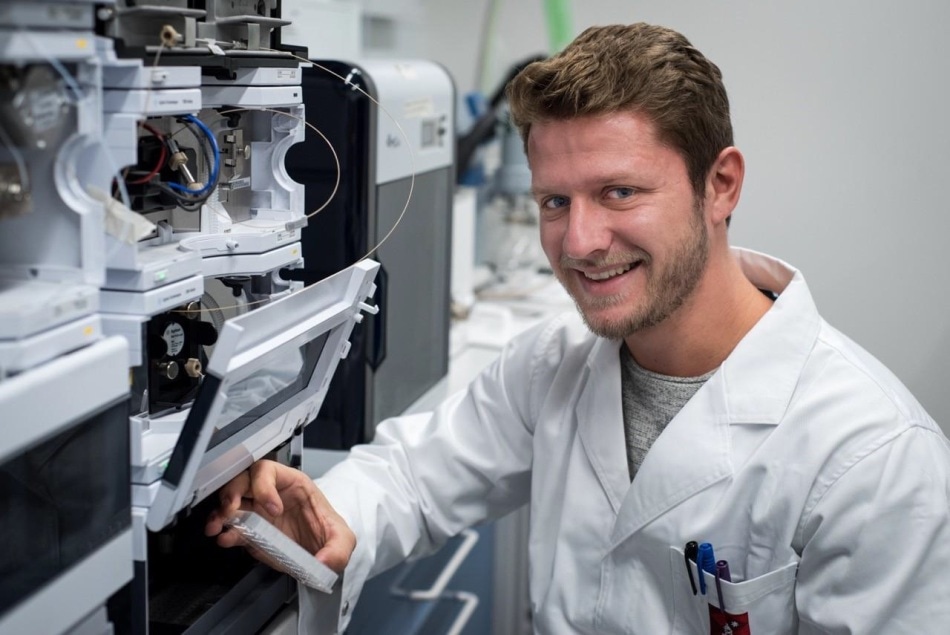Aug 22 2018
A Macquarie PhD student believes he’s come up with a way to turn coffee waste into biodegradable plastic coffee cups.
 Dominik Kopp in the lab
Dominik Kopp in the lab
He’s developed a method to turn coffee grounds into lactic acid, which can then be used to produce biodegradable plastics, and is now refining the process as he finishes his PhD.
“Australians consume six billion cups of coffee every year, and the coffee grounds used to make these coffees are used only once and then discarded,” says researcher Dominik Kopp.
“In Sydney alone, over 920 cafes and coffee shops produced nearly 3,000 tonnes of waste coffee grounds every year.
“Ninety-three per cent of this waste ends up in landfill, where it produces greenhouse gases that contribute to global warming.”
However, 50 per cent of coffee grounds are made up of sugars, which are ideal candidates to convert into valuable bio-based chemicals, or chemicals derived from plant- or animal-based feedstocks rather than crude oil.
“Our group is looking for new ways to convert biowaste—whether that be agricultural, garden, paper or commercial food waste—into valuable raw materials that can be used to produce high-value compounds in more environmentally-friendly ways,” says Associate Professor Anwar Sunna, Dominik’s supervisor and head of the Sunna Lab which is using the rapidly growing field of synthetic biology to address biotechnology and biomedical challenges.
Dominik sourced coffee grounds from one of the coffee shops on Macquarie’s campus and took them back to the lab.
“We assembled a synthetic pathway to convert the most abundant sugar in the coffee grounds, mannose, into lactic acid,” he says.
“Lactic acid can be used in the production of biodegradable plastics, offering a more sustainable and environmentally-friendly alternative to fossil fuel-derived plastics.
“You could use such plastics to make anything from plastic coffee cups to yoghurt containers to compost bags to sutures in medicine.”
Their method was inspired by a metabolic pathway that is thought to exist in an evolutionarily ancient organism, which lives in hot and extremely acidic environments.
Dominik was awarded the INOFEA Early Career Award for Applied Biocatalysis or Nanobiotechnology for the poster he presented on his research at the 18th European Congress on Biotechnology last month.
His next step will be to further refine his conversion pathway, and improve the yield of lactic acid.
“I think my project is one of many interesting approaches on how to use synthetic biology in a responsible manner for the development of a more sustainable and greener industry that doesn’t rely on crude oil,” says Dominik.
“The simple idea that we are converting waste into a valuable and sustainable product is extremely exciting!”
Kopp, D., Care, A., Bergquist, P.L., Willows, R. and Sunna, A. Cell-free synthetic pathway for the conversion of spent coffee grounds into lactic acid. Poster presented at: 18th European Congress on Biotechnology; 2018 July 1-4; Geneva, Switzerland.